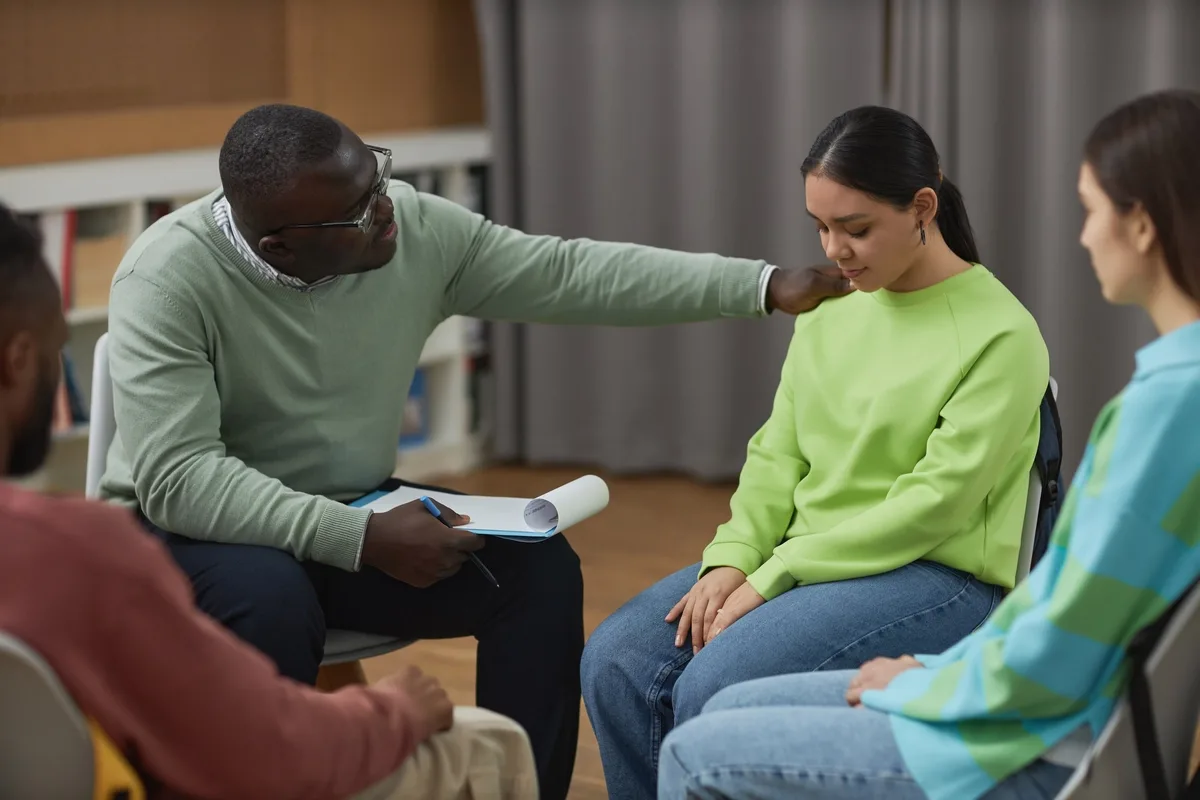24/7 Helpline:
(866) 899-221924/7 Helpline:
(866) 899-2219
Learn more about PTSD Treatment centers in Oldham County

Other Insurance Options

PHCS Network

Carleon

State Farm

Amerigroup

Providence

GEHA

Medical Mutual of Ohio

Sutter

Sliding scale payment assistance

ComPsych

Access to Recovery (ATR) Voucher

United Health Care
Beacon

CareSource

EmblemHealth

Cigna

Horizon Healthcare Service

Coventry Health Care

Excellus

Magellan

Prodigal Ministries
Prodigal Ministries is a non-profit agency located in Crestwood, KY. Prodigal Ministries offers tran...
















































































































